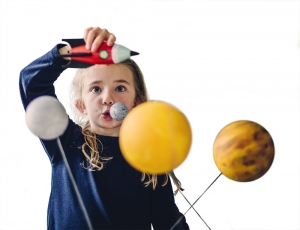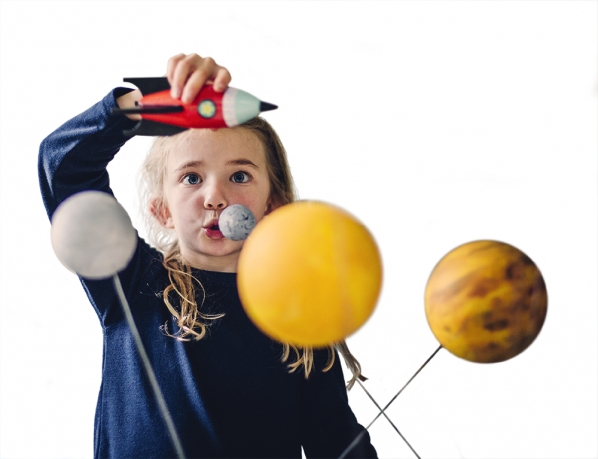The Mathematics and Science Education Center's Science Seminar series returns for 2018-2019.
This year's theme is: A Potpourri of Science and Math.
Please join us for eight seminars related to the above topic.
- All seminars are FREE and open to the public.
- 0.2 CEUs per seminar for teachers.
- Refreshments provided from 6:00 pm - 6:30 pm
- Parking on campus is free after 5:00 p.m. with the most convenient parking for the seminars being in the Library Parking Deck near the RCOE Building.
- The spring seminar is part of the North Carolina Science Festival that will take place during the entire month of April in 2019.
Questions? Please contact Leah McManus (mcmanusld@appstate.edu or 828-262-3185) with any questions.
2018-2019 Series Schedule
You Must Not Fool Yourself and You are the Easiest Person to Fool with Mark Venable (Biology)
Humans have a history of coming to the wrong conclusion about the nature of reality. Our brains are subject to a spectrum of bad mentation. Science offers a toolkit to overcome these problems but watch out for the pitfalls.
Date: September 20, 2018
Time: 6:00 pm - 8:00 pm
Location: RCOE 127
Don't Feed the Ticks!: The Ecology of Tick-Borne Diseases in Western North Carolina with Steve Seagle (Biology)
Tick species and potential human exposure to the diseases they can carry are changing in western North Carolina. While scientists seek the cause of these changes, understanding the distribution, life history and ecology of common tick species can provide a foundation for avoiding exposure.
Date: September 27, 2018
Time: 6:00 pm - 8:00 pm
Location: RCOE 124C
Key to the Cabinets: Unlocking Natural History Collections through Citizen Science with Zack Murrell (Biology)
There are three billion collections of plants, animals, and fungi held in museums throughout the world. Many of these specimens were collected from areas that are developed and no longer support natural habitats, making these specimens irreplaceable. Museums have traditionally been places where scientists could study specimens, but data about specimens has often been difficult to obtain. Current global and national efforts to make specimen information more widely available are engaging amateur biologists to work alongside professionals to build regional, national and global data resources that can be used to address immediate and long-term conservation and research needs. This seminar will review these global and national efforts and provide opportunities to become a “citizen scientist.”
Date: October 4, 2018
Time: 6:00 pm - 8:00 pm
Location: RCOE 124C
Explaining the Impossible: Kenneth Arrow's Nobel Prize-Winning Theorem on Elections with Rick Klima (Mathematics)
An overview of some of the criteria that election theorists use to evaluate the fairness of voting methods, including several examples of real elections (from both politics and popular culture) that demonstrate these criteria. And, a description of Kenneth Arrow's famed impossibility theorem, which earned Arrow the 1971 Nobel Prize in Economic Science, and which is often misrepresented in literature. Finally, an explanation for why Arrow's theorem is true, and a few possible resolutions to the problems in democratic election theory that were revealed by Arrow's work.
Date: October 25, 2018
Time: 6:00 pm - 8:00 pm
Location: RCOE 124C
Anti-Semitism in Nazi Germany and its Repercussions for Physics with Tonya Coffey (Physics)
During Hitler’s rise to power in the 1930’s, the “Law of Restoration of the Career Civil Service” caused most “non-Aryans” to be dismissed from their positions. The faculty of German state universities were subject to this law, and as a result, about 25% of the physicists were dismissed from their positions. This included 11 Nobel laureates or future laureates. Faculty leadership positions were also sometimes given to party members or supporters, rather than the most qualified scientists. German physics, a once proud field, therefore became a relatively minor contributor after 1933 and remained so for many years.
Date: November 8, 2018
Time: 6:00 pm - 8:00 pm
Location: RCOE 124C
Paleo, Keto, and Gluten-free Diets: A Nutritionist's View with Marty Root (Nutrition and Health Care Management)
The pros and cons of some popular diets.
Date: November 15, 2018
Time: 6:00 pm - 8:00 pm
Location: RCOE 124C
Cooking on Sunshine...The Physics of Solar Cooking with Carla Ramsdell (Physics and Astronomy)
We will explore the thermodynamics of converting solar energy into a free, zero-carbon-emission cooking fuel. Solar ovens and skillets are designed to maximize the capture of solar radiation and are a fantastic way to cook and purify water for every-day use and especially in resource-limited environments. Ten different ovens ranging from box cookers to evacuated tubes to parabolic dish reflectors will be on display. This basic, conceptual physics discussion is open to ALL participants, regardless of science background.
Date: April 18, 2019
Time: 6:00 pm - 8:00 pm
Location: RCOE 124C

